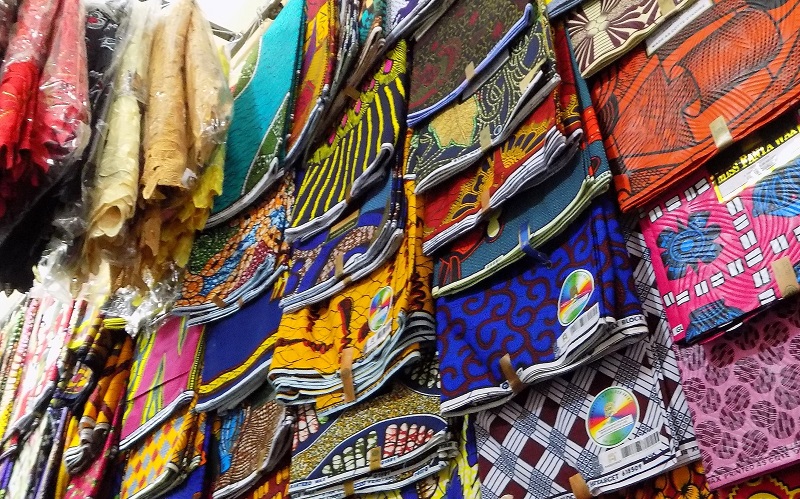I was recently invited to read this poem at a very special event, in Canterbury, held on the 22nd of June 2019, which happened to be the second annual National Windrush Day, an unexpected and not inappropriate coincidence! Before reading the poem, I congratulated the dynamic Books2Africa team and their dedicated helpers and supporters in having gathered, parcelled, dispatched and distributed more than one million books to educational institutions, the length and breadth of the African Continent, and all this within the short time-span of six years! This inspiring Celebration was simultaneously local and international, a great example of multicultural connections at their best.
For too many centuries, too many countries, Old Blighty prominent among them, have seized and exploited Africa’s Peoples and abundant natural resources, on a scale of stupendous, astronomical proportions. Giving back to those, from whom so much has been seized, appropriated and misappropriated should surely be considered as a move, in the direction of reparative justice.
Having lived and worked in Zambia and Nigeria, I have on numerous occasions been the recipient of spontaneous, inclusive generosity; and the following narrative poem celebrates this aspect of traditional African hospitality.
Emergency Outfit
For Grace Sibeudu, who made it and the
Guardian Angel Elder, who made its making possible.
The hotel receptionist, elderly benign, Sustained a refrain of regretful sighs And polite exclamations of commiseration, At the traveller's tale of luggage, Conference papers, toiletries and clothes, Conjured into mystery-disappearance, Between departure from Lagos And arrival in Ghanaian capital. -
Deprived of her precious load, She had retraced her flight path, Searched in vain, the subterranean Recesses of Murtala Muhammed airport, And directed in defeat, found herself Lodged in a Maryland hotel for the night, Before early morning return flight to Accra And the Cape Coast Conference, innocent Cause of her predicament and woes. -
There she stood, weary-limbed-frustrated, Stale with the sweat of travel and tension, Before the fatherly figure, performing His role, on duty at reception, A sympathetic, lean-limbed Baba, Bestowing on her still-youthful exasperation The calming benediction, of his plea for patience. -
Even the pleasure of cleansing ablutions Was peevishly prohibited and denied, For some evil genie of unknown origin Had sentenced her to indefinite imprisonment In clothes, pungent with the odour Of tedious travel in tropical clime. -
To him, it mattered not, that she was Oyinbo1, In appearance, affluent-white, To this sympathetic, attentive Elder She was a daughter, troubled, tired-exhausted, Whom the Gods had placed in his patient hands, Charged to effect a measure of relief, Lower her level of acute distress. -
Investigation soon revealed She worked in Port Harcourt, The City where one of his sisters lived. There could be no doubt; Spirits were at work. Encouraged by Ancestral Voices from home, They had guided her steps for the purpose Of testing the measure of his devotion To time-honoured customs and traditions, In Lagos City, where poverty and greed Could transform newcomers, with indecent speed Into career-criminals, flashy-fearsome, Or weary waged workers, paid a pittance. -
And so he turned his back on fatigue, Postponing his well-deserved rest and respite At the end of a long day's routine shift, To lead her, with expert smiling calm, Through the early evening, frenzied Assortment of wheeled machines, Clogging manic Lagos motorways, With spluttering, sporadic, toxic speed, Before guiding her, chaperoning her, Along dusty, sun-soaked back streets, Until triumphant, he stood with his charge, In front of the familiar, cramped sewing shed Of his kinswoman, standing outside, alone, Locking her door, preparing to go home, To whom he made urgent, eloquent request, On behalf of the young woman at his side, Reassuring her, in turn, that all would go well: For now I leave you in Madame Sibeudu's Clever-capable hands, willing and ready To create for you an Emergency Outfit And so erase those unbecoming frowns From a face I hope to see wearing smiles, When I return in a couple of hours. -
Madame, empathetic-sympathising Unlocked her door, flung open the shutters, Installed her customer-guest, comfortable inside, Let her choose some fabric, while she suggested A style, simple but elegant, for One Soon to take to the skyways again. Curious, some friends stopped to enquire Why her fluorescent light burned bright at this hour, Taking time to sit and chat for a while, With encouraging words for the guest from afar. -
Not long after one of Grace's friends had remarked: Our guest surely requires more than kind words, To re-energise for the challenges ahead, The shed became a bustling, buzzing centre Of female solidarity with a stranger. One mother sent her daughter, to fetch Refreshing soft drinks from her well-stocked fridge Another lady arrived with warm chin-chin2 Crisp and crunchy in enamelled dish. A young girl, smiling shyly, curtsied3, offered A bowl of warm water, soap and towel, For the guest to wash her hands, ready To taste and enjoy the fried fish, Still warm, she had carried from home On her mother's instructions, telling the traveller: You go enjoy my Mama's cooking well-well. Yes, indeed, another woman chimed in, Among us, Mrs Agbara is famed For her kindness and culinary skills. And all the while, the guest ate and talked, In the background, the vital work rarely stopped, As the sewing machine rattled and hummed, Obedient to the magic of fingertips, Long tutored, in deft motion and touch. -
While trying on the outfit-in-the-making, One of Grace's visitors, laughingly declared Herself newly rich in feminine underwear, After her sister's shopping spree in the U.K., Then somewhat abruptly disappeared, Soon to return, smiling-triumphant, An Igbo Fairy-Goddessmother, working Her magic with satisfaction, placing A pair of brassière and underpants Discreetly wrapped on the young woman's lap: They go size you well, of this I am sure, She announced to the recipient Momentarily speechless in wonder, Surrounded by the practical kindness Of women who embraced her, accepted her As just another sister, mother, daughter. -
A tap on the shutter brought Grace to the door Where her husband, anxious to learn the reason For his wife's prolonged absence from home Soon left satisfied, smiling support, Since his wife's skills, he readily agreed Were needed that evening, as never before! To honour his wife, her customer and friends, He sent a crate, full of soft drinks, To slake their thirst and speed up the work. -
With boubou, skirt and headtie, neatly Pressed and parcelled, ready for departure, Her Guardian Angel soon reappeared at her side, Ready to guide and escort her Through the dazzle and din of Lagos Frenetic night-life once again. Taking note of the welcoming smiles On his charge's face, her guide concluded She had shed, a good part of her earlier Malaise, melancholy, enervating gloom: The very transformation, he had been hoping for; And seeing the amity and pleasing warmth Between Grace and her customer-guest, Knew that the foreigner had not been decashed, Knew payment made for services rendered Had been generous-fair, profiteering-free. -
Indeed, Grace had charged her crisis-customer A modest sum, for in this venture Her chief satisfaction was a job well done, Knowing her skills, her creativity Had helped a weary, despondent traveller Solve a problem, overcome a difficulty. And if news of this evening's activities Travelled fast along familiar gossip trails, Her reputation, enhanced, could, in addition Bring new customers knocking on her door, Grace mused, smiling quietly to herself; And turning to her customer, her words Teasing, brought laughter to a sweet leave-taking. -
Ee, I never knew I could sew like the wind. This evening is one we will never forget! And so, God bless you on your way, May your conference go well; And when they ask you in Cape Coast just how You managed a complete change of clothing, Please tell them your Emergency Outfit Is the product of Grace's Emergency Sewing! And let us remember without Uncle's help,4 Quick thinking, prompt action, You would not be here; we would never have met, No Emergency Outfit for you to wear. -
The fatherly Elder was quick to respond: My daughters, the actions I took To help a stranger in need, Should be considered, unexceptional, Simply good breeding, a matter Of applying best practice, according To our ancient customs and traditions, Traditions we have been privileged To share with our British guest and visitor, Customs and traditions, too often ignored In the wild struggle for money and power! -
As the visitor listened, lines from a poem
Deep buried, long forgotten, rose insistent
To the surface, for it seemed to her
That William Blake and this Wise Elder
Sang in harmony for Common Humanity:
"Can I see another's woe,
And not be in sorrow too?
Can I see another's grief,
And not seek for kind relief?"5
On her return to the Maryland hotel,
The guest expressed gratitude to her guide,
His reply prompting blushes and laughter,
On that unforgettable Lagos night:
Ee my dear, how could I stand idly by
Seeing nasty frowns, spoiling a pretty face.
Your smiles restored, are my recompense!
—
Notes
It was during the period when I was Head of a very lively English Department at the Rivers State College of Education (1978-80), that I attended a conference, at the University of Cape Coast, Ghana, where I presented a paper on “Pedagogical Politics in Ngũgĩ wa Thiong’o’s novel ‘Petals Of Blood’”, published in the Journal of the Literary Society of Nigeria, Number 1, 1981. Despite unforeseen complications, eventually all went well and as I hoped, my paper stimulated energetic debate!
1 Oyinbo – Igbo word, meaning a “white” person.
2 Chin-chin – These are small, crunchy chunks of fried sweetened dough, enjoyed as a snack. SEE – Nigerian Cookbook. H.O. Anthonio and M. Isoun. London: Macmillan 1988 edition, p.179. Go to this page for a recipe!
3 Curtsied – Here the young girl curtsies, not because she is in the presence of an Oyinbo, but to show respect to an older person.
4 Uncle’s help – Grace refers to the traveller’s fatherly “Guardian Angel” as an “uncle” to indicate his senior status in society. In such contexts, the words “uncle”, “aunt”, “auntie” are frequently used to refer to age differential, again carrying the connotation of respect. The style is informal and familiar, with no reference to biological kinship ties.
5 Kind relief – Dr David Edwards in his editorial role reminds us that William Blake (1757 – 1827) was “the only great poet of the English Romantic movement who was genuinely working class.” He was, I must add, highly skilled working class and in Dr Edward’s words “a very accomplished engraver, both of others’ work and his own original designs.” SEE – A Choice of Poets (New Edition). Editor Dr David Edwards. Walton-on-Thames: Thomas Nelson and Sons Ltd. 1999, p.49 and for the full text of the poem “On Another’s Sorrow“, pp.60-61.
©Hilary Rouse-Amadi.

